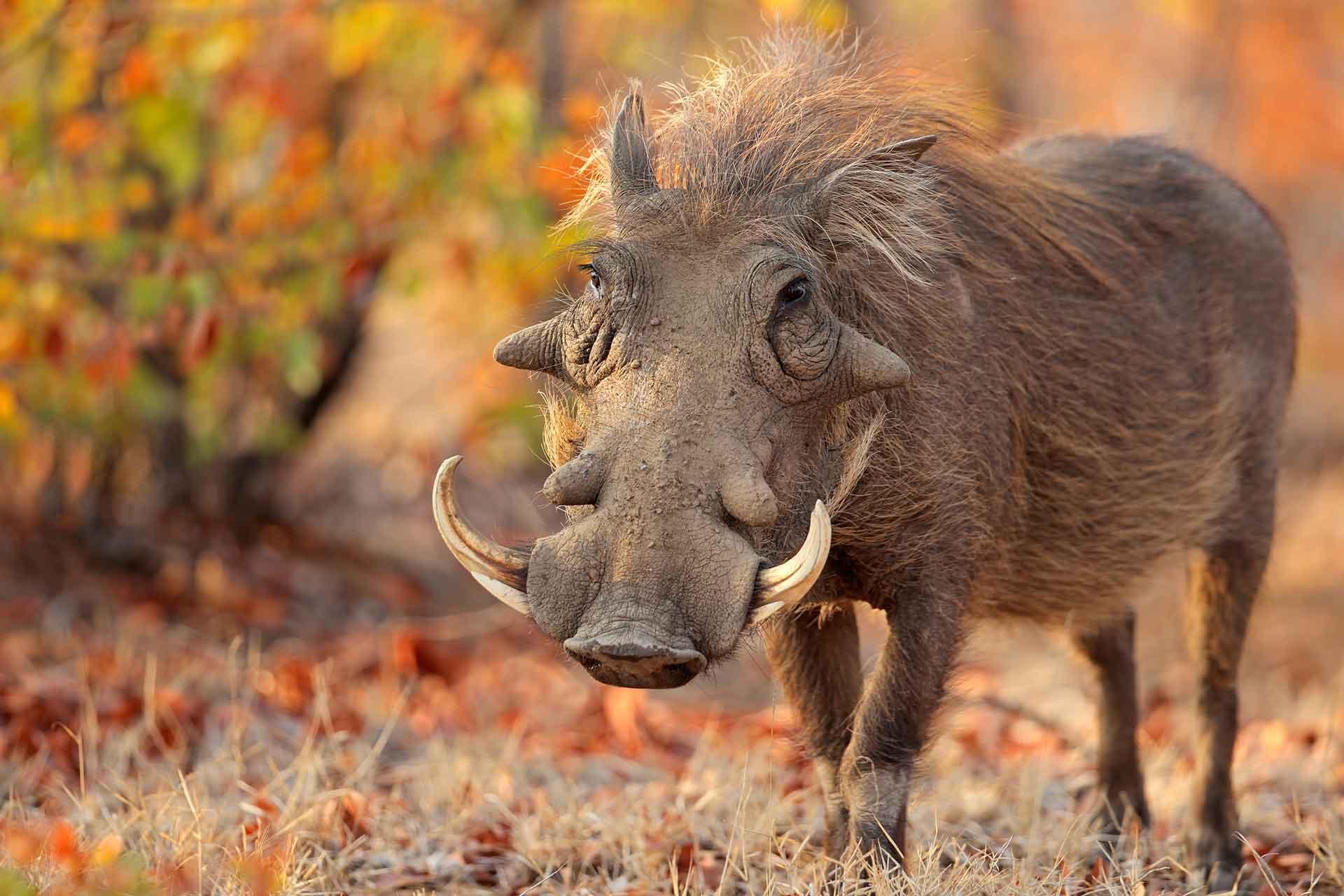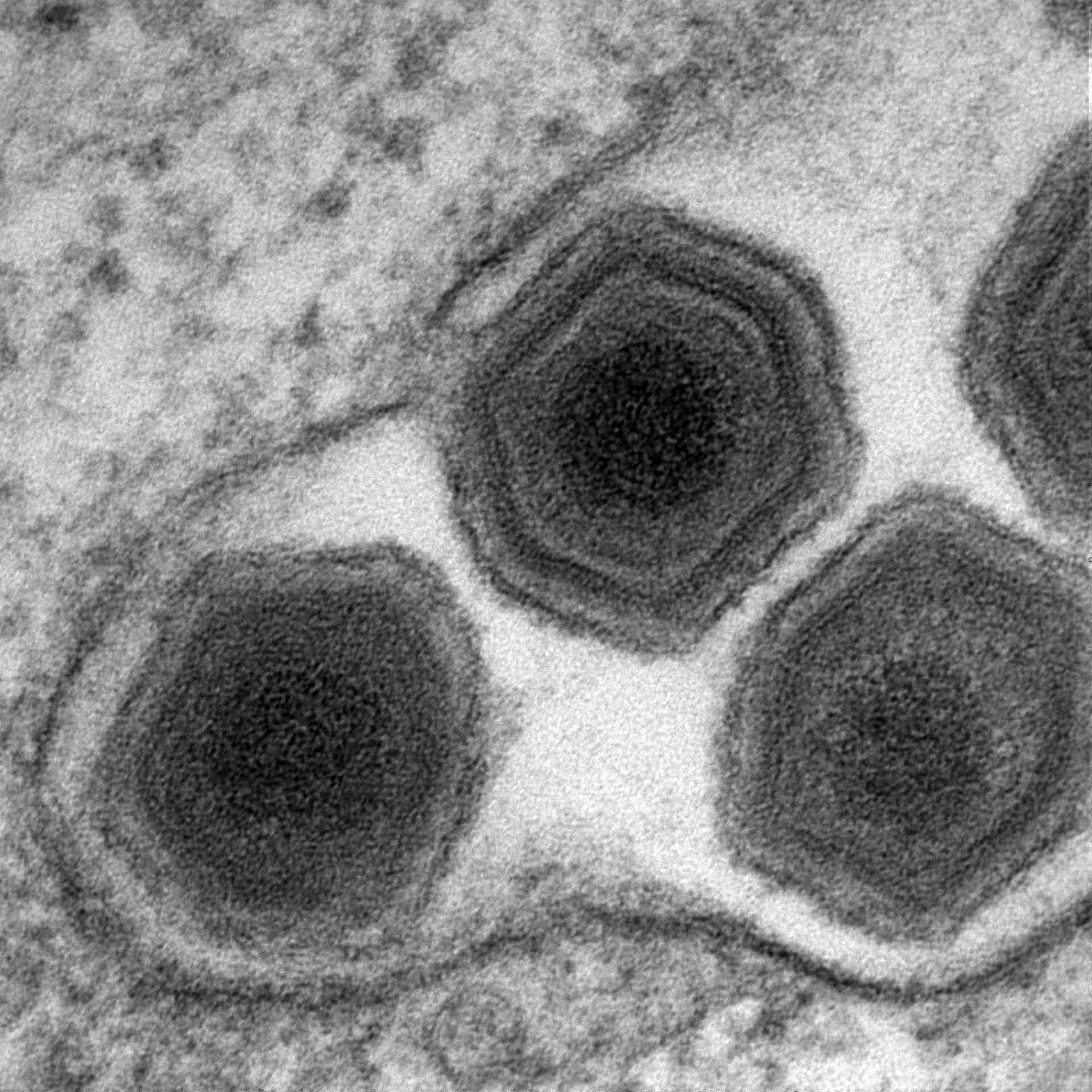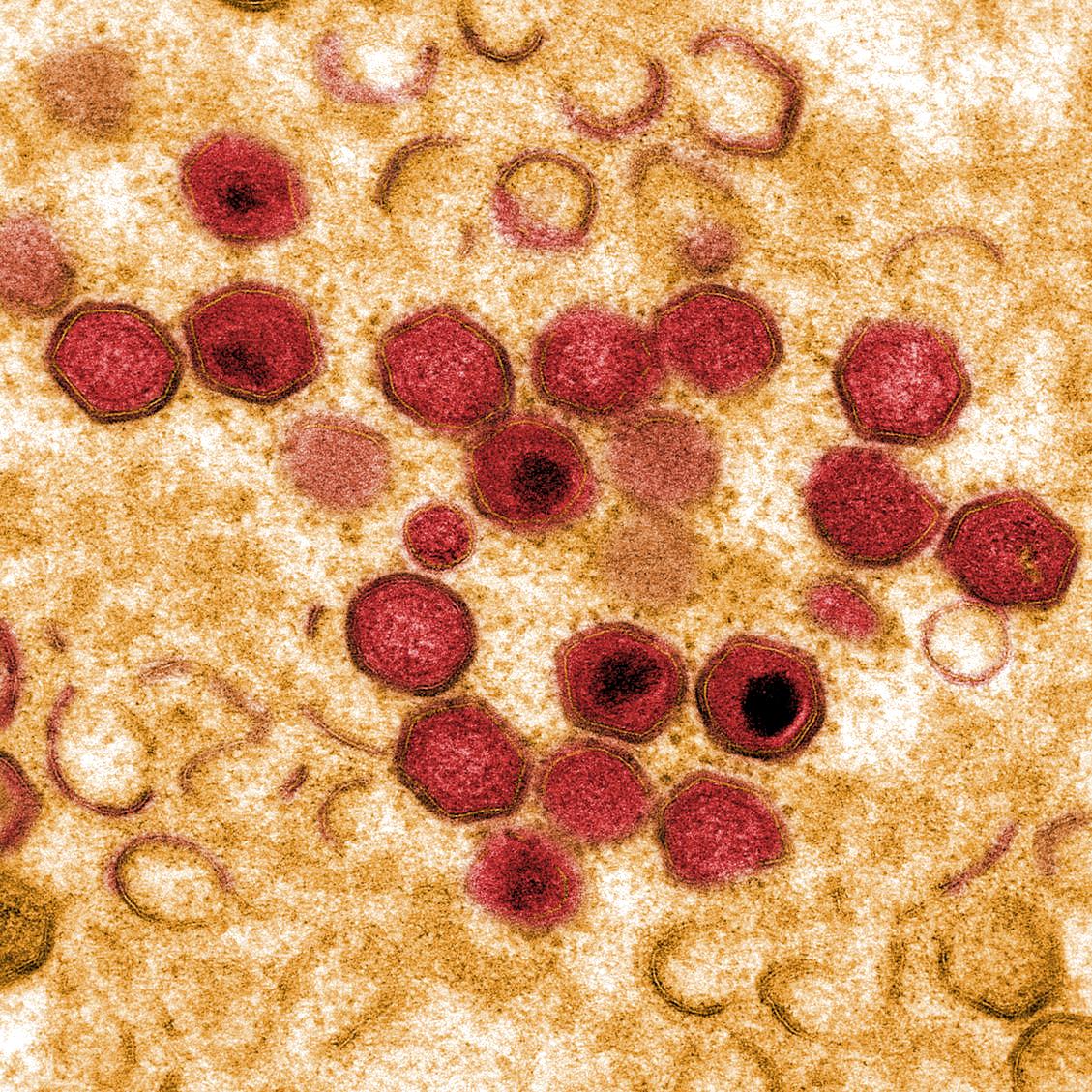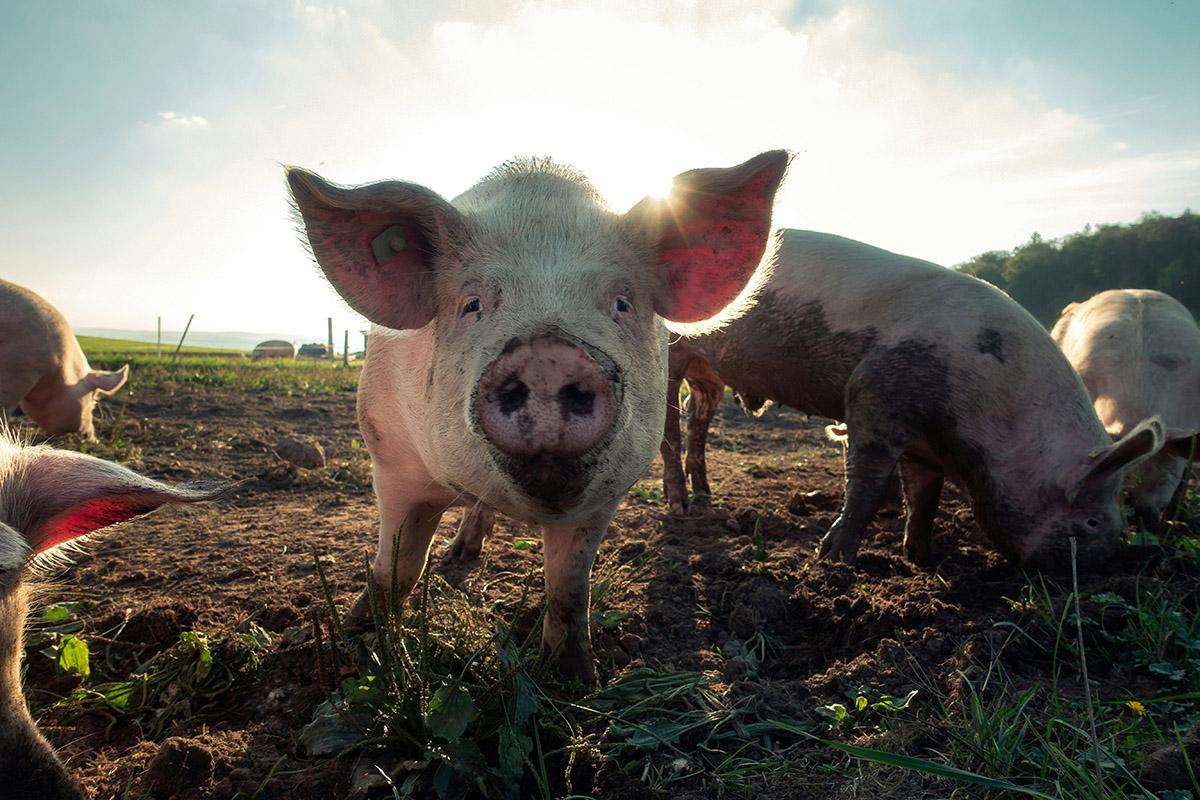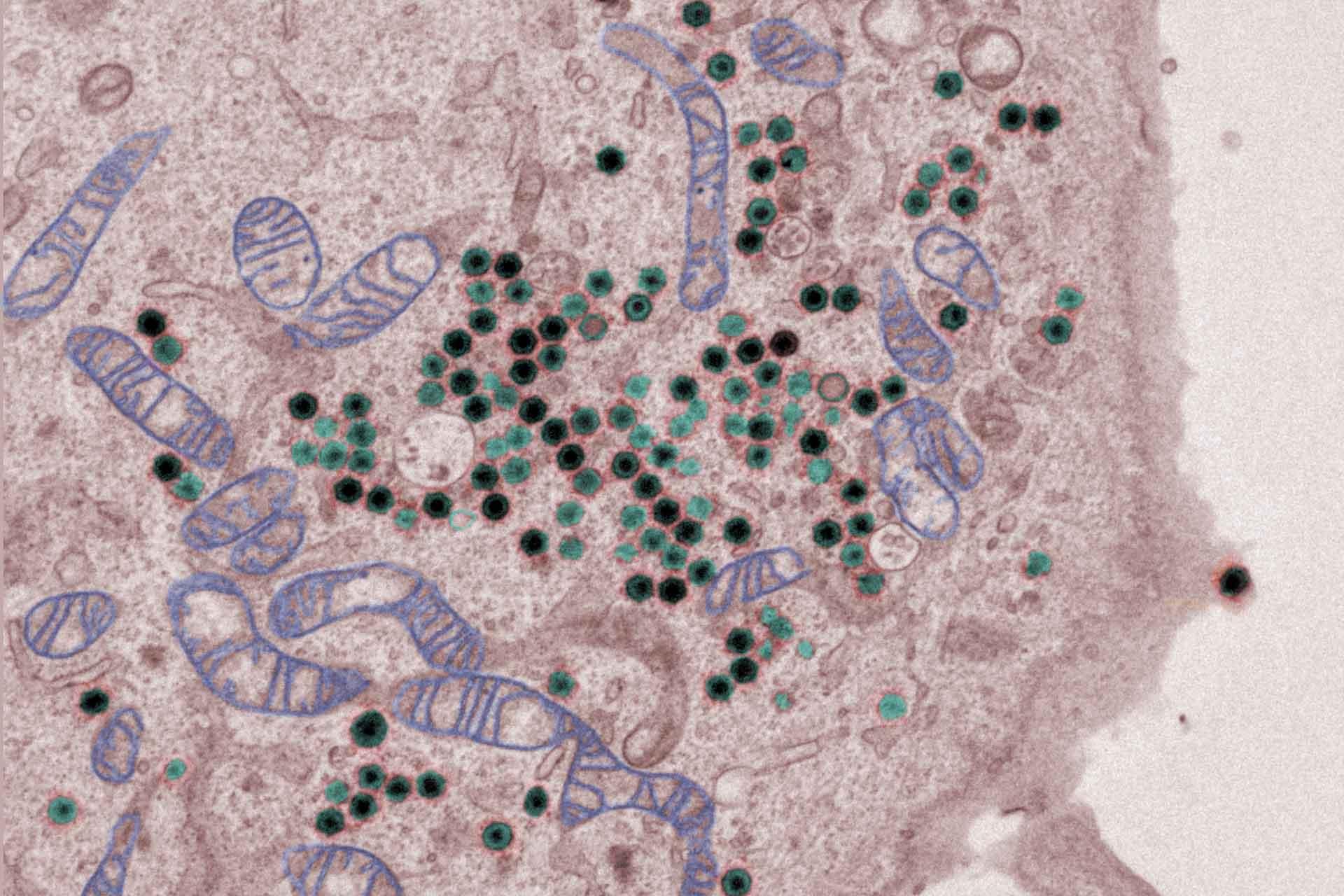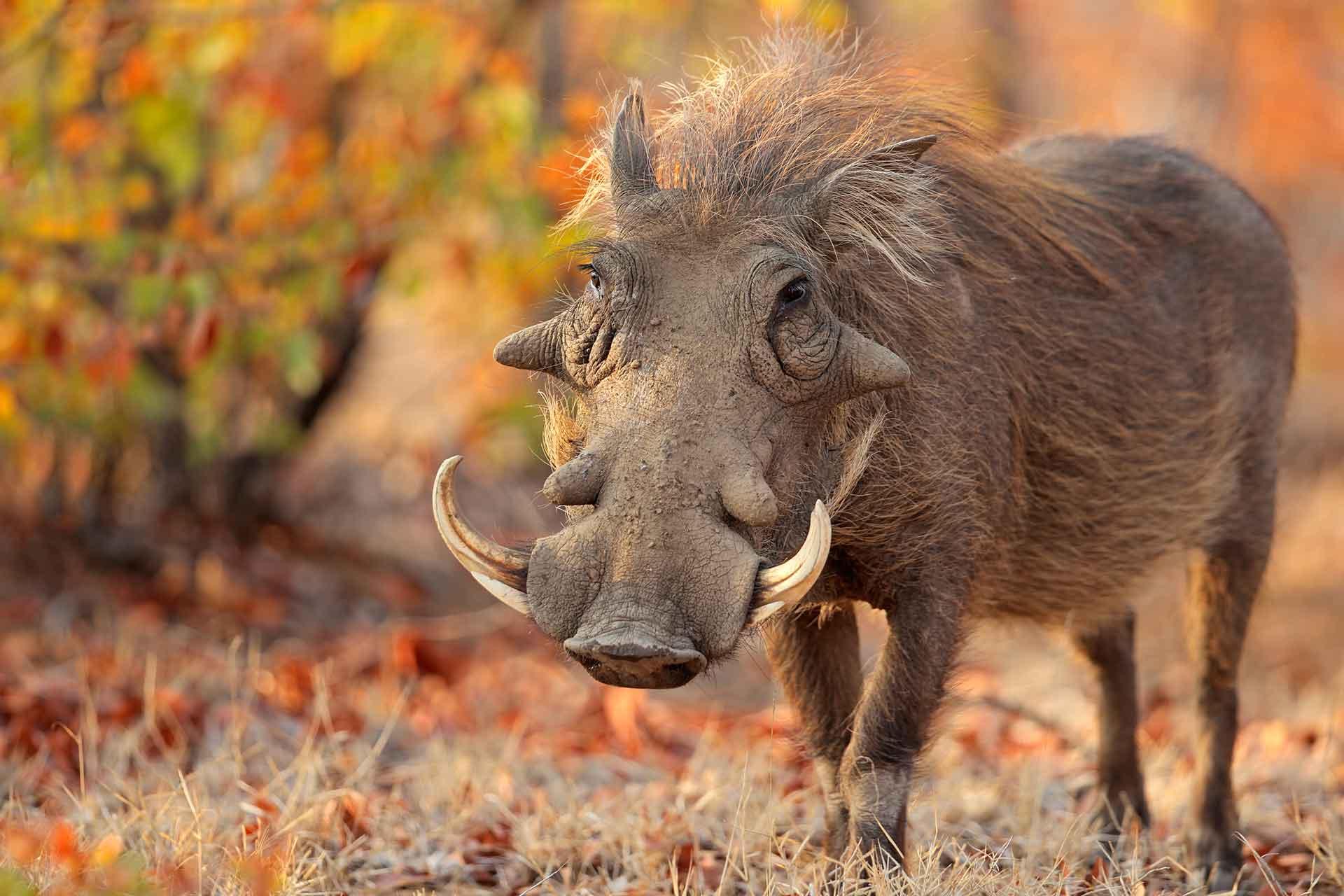Our group
The African swine fever vaccinology group focuses on applied and fundamental research into the large DNA virus that causes African swine fever (ASF), a lethal haemorrhagic disease in pigs and wild boar. Control of African swine fever is limited to slaughter and quarantine of infected animals due to the lack of a vaccine.
Our aims
The aim of the African swine fever vaccinology group is to guide the design of vaccines against African swine fever (ASF) through a combination of functional genomics, identifying correlates of protection and gaining a deeper understanding of host-pathogen interactions. We aim to identify correlates of protection by analysing the adaptive immune response of pigs protected from virulent African swine fever virus (ASFV) by experimental vaccines. Characterisation of how ASFV manipulates host pathways will further our understanding of immune evasion mechanisms and identify additional virulence factors for targeted deletion from candidate live attenuated vaccines.
Our research
Correlates of protection. We are developing tools to understand the protective immune response to African swine fever in pigs and use this information to guide vaccine design. The T-cell response is important in protection, however the role and function of individual subsets is poorly defined and these are being explored in our different vaccine models. The role of antibodies in protection is also not well understood and is an active area of our research.
Identification of protective antigens. We are using different approaches to identify potentially protective proteins out of the more than 150 encoded by the viral genome. Selected proteins will be incorporated into vaccine vectors for immunisation and challenge experiments in pigs.
Host pathogen interactions. We are studying the way African swine fever virus exploits a highly conserved cellular pathway called autophagy. This pathway is involved in a range of host responses relating to cellular homeostasis as well as defence against pathogens. We are using tagged viruses in combination with super resolution microscopy and mass spectrometry to identify new targets for viral manipulation of the cell.
We are part of an international partnership tackling both African swine fever and lumpy skin disease.
Our impact
African swine fever is a continual threat to global food security. In Africa the disease restricts the development of a thriving pig sector and the outbreak in China in 2018 ultimately led to a decrease in the Chinese pig herd of nearly 40%. The UK exported £490m worth of pig meat in 2018, of which at least £148m was to countries outside of the EU (Source: Agriculture and Horticulture Development Board). The English pig industry was calculated to contribute £304.9m net to the UK economy in 2012 (Source: The real value of English red meat, Matrix 2012). Therefore ASF has the potential to cause a great deal of economic damage to the UK.
ASFV is endemic in much of sub-Saharan Africa where it causes significant loss of stock in commercial and backyard farms. The ability to effectively control ASFV would have great economic and social value in the developing world, both at a local level where pig farming represents an opportunity for the rural poor of a long term income stream as well as a source of cash in an emergency, and at the national level by removing barriers to trade.
